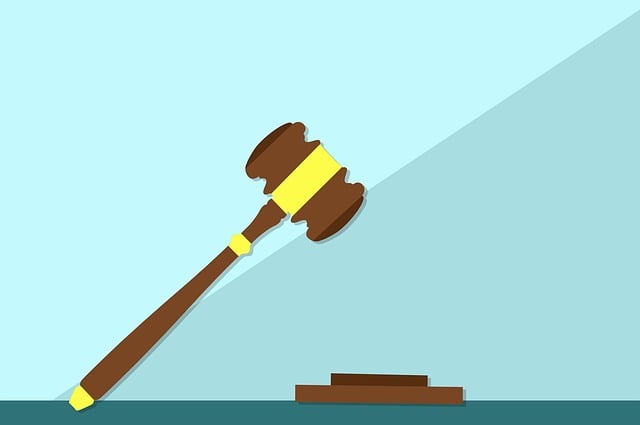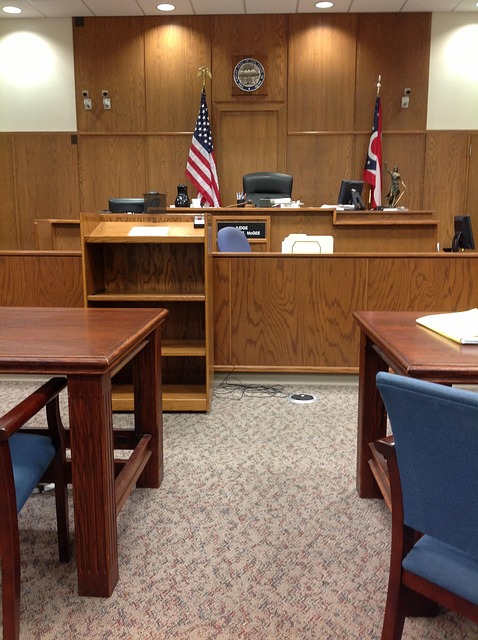Administrative and civil proceedings differ in RF Regulatory Agency (RFRA) investigations. Administrative cases focus on regulatory compliance, while civil lawsuits involve private disputes seeking damages or specific performance for RF standards violations. Civil cases offer a flexible, adversarial framework with higher evidence standards. Understanding these differences is crucial for clients facing RF charges, guiding strategies to dismiss charges or achieve favorable outcomes.
In today’s interconnected world, understanding RF Regulatory Agency Investigations is paramount for businesses navigating complex wireless communication landscapes. This article delves into the intricacies of these inquiries, exploring key facets such as administrative proceedings, their distinct rules and procedures, and the legal frameworks governing civil litigation.
We highlight crucial differences between administrative and civil proceedings, including proof and burden of evidence requirements, offering a comprehensive guide to help stakeholders manage potential penalties and forge favorable resolutions.
- Understanding RF Regulatory Agency Investigations
- Administrative Proceedings: Rules and Procedures
- Civil Litigation: Legal Framework and Impact
- Key Differences in Proof and Burden of Evidence
- Navigating Penalties and Resolutions
Understanding RF Regulatory Agency Investigations

RF Regulatory Agency Investigations play a critical role in ensuring compliance with radio frequency (RF) standards and regulations. These inquiries can stem from various concerns, including allegations of non-compliance, safety hazards, or unauthorized spectrum use. Understanding the process is crucial for both corporate and individual clients navigating their respective business environments.
The investigations differ significantly between administrative and civil proceedings. Administrative investigations are typically initiated by regulatory bodies to assess compliance with RF rules and regulations. They often involve routine audits, document reviews, and interviews with stakeholders. In contrast, civil proceedings are more focused on resolving legal disputes arising from alleged RF-related violations, where individuals or entities may face penalties, fines, or legal repercussions for their actions. White-collar defense becomes a key consideration in such scenarios, ensuring fair treatment and adherence to legal protocols throughout the investigation process.
Administrative Proceedings: Rules and Procedures

Administrative proceedings within RF Regulatory Agency investigations differ significantly from civil lawsuits. While both involve legal disputes, their rules and procedures vary crucially. In administrative cases, the focus is on regulatory compliance and enforcement, with the agency acting as both investigator and judge. This process aims to resolve issues related to radiofrequency (RF) technologies’ safety, interference, and licensing, ensuring fair practices across the country.
In contrast, civil proceedings are private lawsuits between parties, often focusing on compensation for damages. These differ in scope, structure, and evidence requirements from administrative actions. Understanding these distinctions is vital for clients facing RF-related legal issues, as they may need to navigate different strategies to avoid indictment or resolve conflicts effectively across the country.
Civil Litigation: Legal Framework and Impact

Civil litigation plays a significant role in RF Regulatory Agency (RFRA) investigations, offering a distinct approach compared to administrative proceedings. The key differences lie in the nature and objectives of each process. Administrative proceedings focus on regulatory compliance and enforcement, where RFRA investigates potential violations of radio frequency (RF) standards with the aim of ensuring fair competition and public safety. On the other hand, civil litigation is a legal dispute between private entities or individuals, seeking monetary compensation or specific performance to redress harm.
In terms of legal framework, civil litigation provides a more flexible and adversarial environment. Unlike administrative actions that typically follow set regulations and procedures, civil cases allow for a broader range of arguments and evidence presentation. This can be especially beneficial when navigating complex RF-related issues where technical expertise is crucial. An attorney with an unprecedented track record in representing both corporate and individual clients can leverage this experience to navigate the nuances of civil litigation, ensuring his clients’ rights are protected and their interests are advanced during RFRA investigations.
Key Differences in Proof and Burden of Evidence

In RF Regulatory Agency investigations, understanding the key differences between administrative and civil proceedings is essential. Administrative processes often involve internal agency reviews and determinations, focusing on regulatory compliance and enforcement. Here, the burden of proof is typically less stringent compared to civil lawsuits where a higher standard of evidence is required. In terms of procedures, administrative cases may not always include jury trials, as they are more suited for judicial review and determination by agency officials or administrative law judges.
The differences between these two types of proceedings have significant implications for individuals and businesses facing RF regulatory charges. While the goal of both is to ensure adherence to rules and regulations, the approaches and evidence standards vary greatly. For his clients, navigating these distinctions can lead to a complete dismissal of all charges or a more favorable outcome in terms of penalties and sanctions.
Navigating Penalties and Resolutions

Navigating Penalties and Resolutions plays a pivotal role in RF Regulatory Agency Investigations. Understanding the nuances between administrative and civil proceedings is essential. Administrative actions, often initiated for regulatory violations, focus on ensuring compliance with established rules and standards. These may include fines, license suspensions, or orders to correct issues. In contrast, civil proceedings, typically arising from private complaints, involve damage claims and are more focused on compensating affected parties for losses incurred due to alleged misconduct.
The differences between these two types of proceedings significantly impact the potential penalties and resolutions. While administrative actions serve as deterrents and enforce regulatory integrity, civil cases aim to provide redress to victims. Throughout all stages of the investigative and enforcement process, RF Regulatory Agencies must balance these objectives, ensuring that penalties are proportionate and resolutions are fair, promoting both regulatory compliance and justice for affected entities or individuals, including white-collar and economic crimes.
RF Regulatory Agency investigations encompass diverse paths, with key distinctions between administrative and civil proceedings. Understanding these differences is crucial for navigating potential penalties and resolutions. While administrative processes focus on rule adherence and specific remedies, civil litigation involves complex legal frameworks and higher burdens of evidence. Recognizing these nuances enables stakeholders to strategically manage their responses, ensuring compliance and mitigating the impact of RF-related regulatory challenges.






